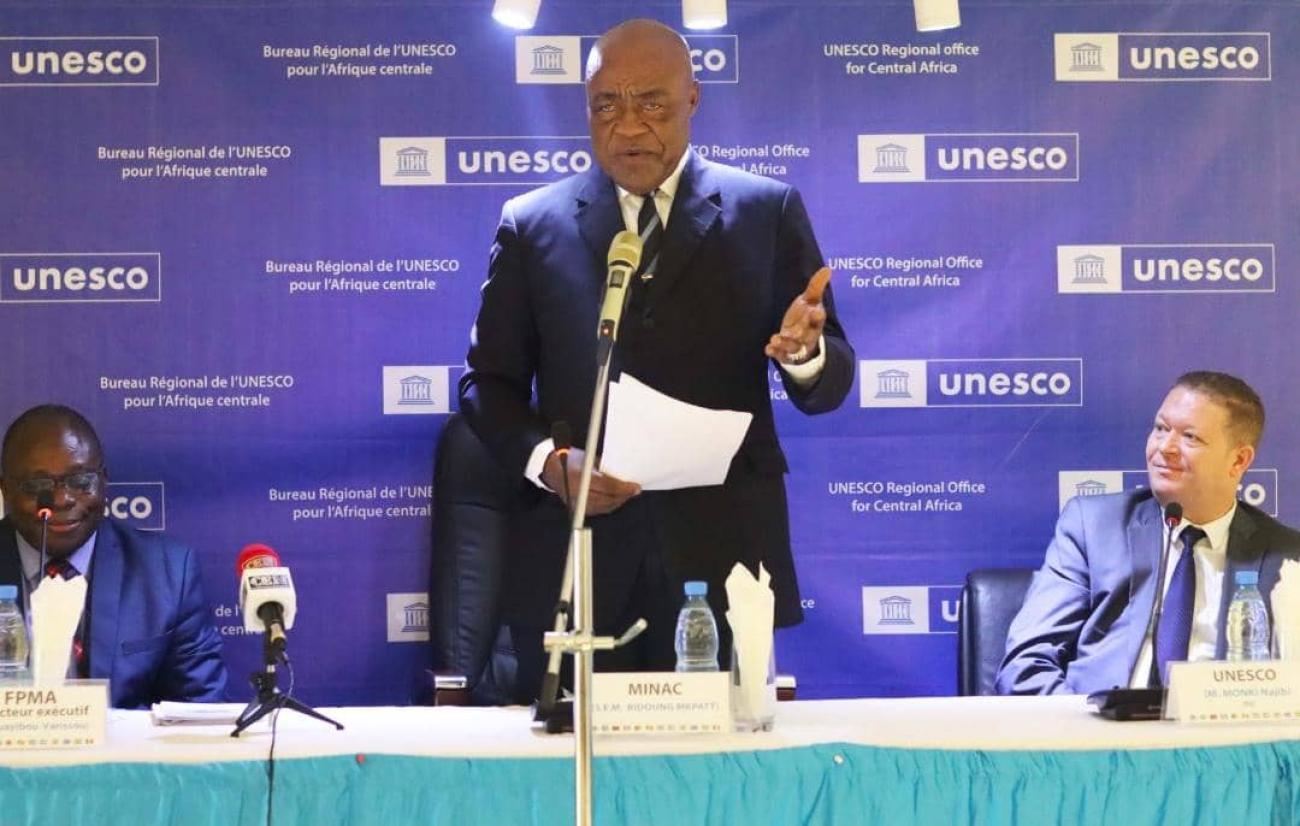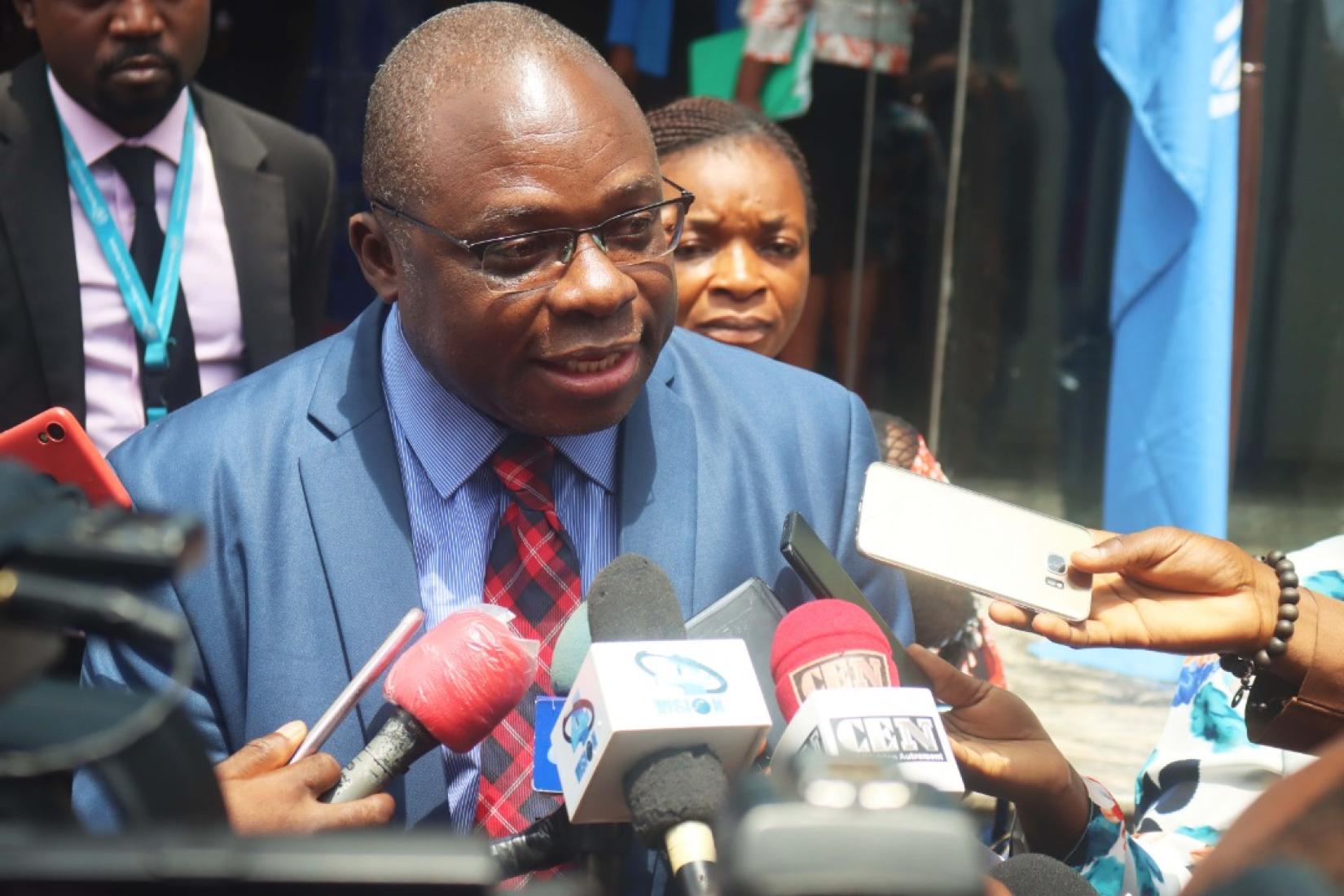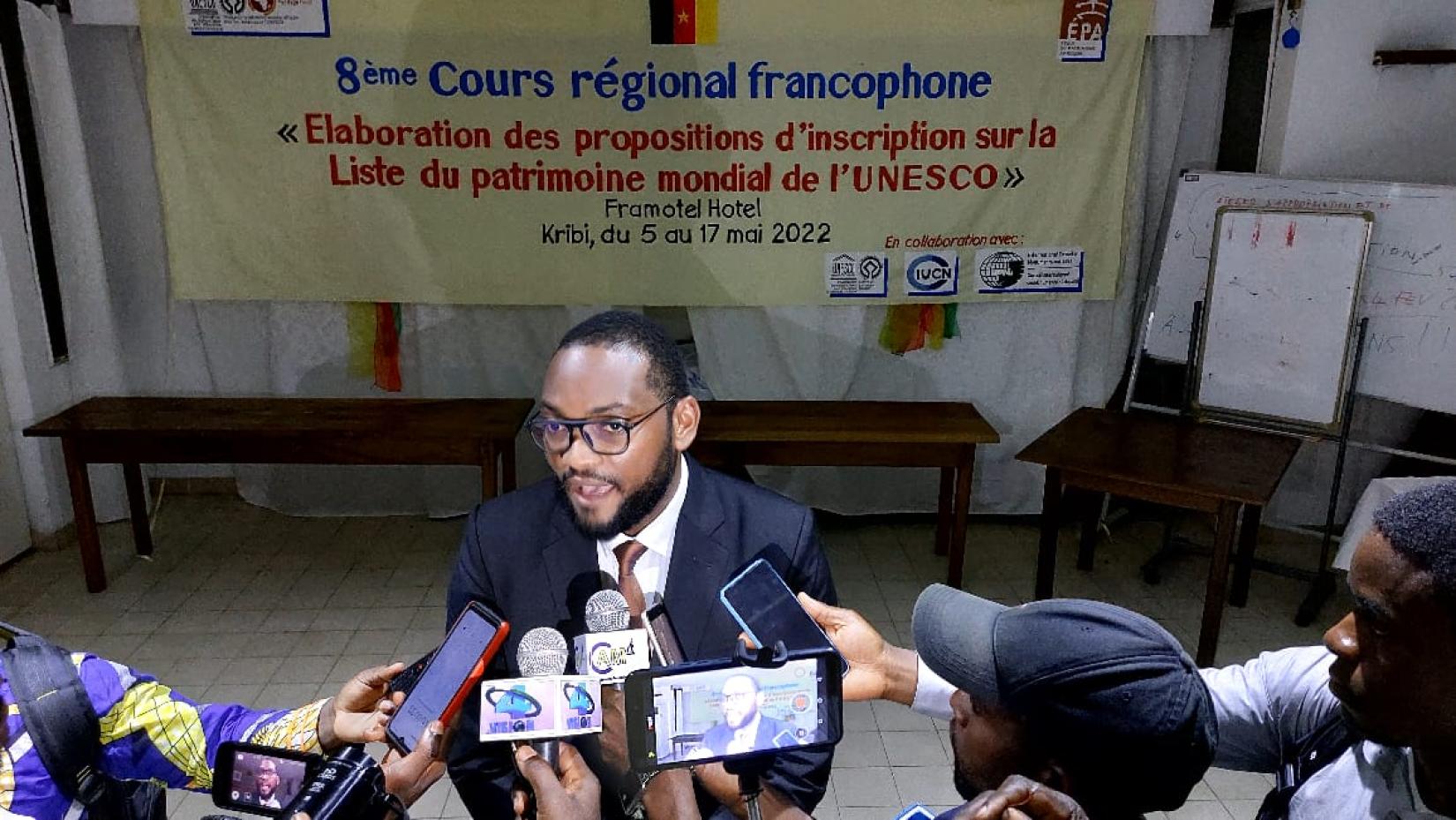UNESCO Reiterates Commitments on African World Heritage Day - May 05

“The Central Africa region still holds some of the World's most valuable natural and cultural heritage”
In the face of climate change, civil unrest, instability, uncontrolled development, poaching, and the COVID-19 pandemic, the Central Africa region still holds some of the World's most valuable natural and cultural heritage.
It is under this context that the UNESCO Regional Office for Central Africa hosted the celebration of the African World Heritage Day on May 05, presided over by the Minister of Arts and Culture (MINAC) and in close collaboration with the African World Heritage Fund (AWHF), School of African Heritage (EPA) and their partners, welcome the cooperation framework between UNESCO and countries of the subregion in efforts to protect our common heritage.
During the ceremony in Yaounde, H.E. Bidoum Pkatt (MINAC) affirmed that “The protection of cultural and natural heritage is not only reflected in the ratification of the 1972 convention but also goes beyond it. The inclusion of two natural sites, including a cross-border site; the Lobeke National Park of the Cameroonian part of the Sangha Tri-National on the prestigious World Heritage List, reflects the regional and intra-African determination that we have to protect and preserve this natural heritage.

The Executive Director of the African World Heritage Fund (AWHF), Mr. Souayibou Varissou on his part reiterated, “Our continent is blessed with an incredible richness and diversity of both natural and cultural heritage that must be known, recognized, promoted, and preserved for present and future generations. However, with only 12% of the 1154 World Heritage Sites and more than 40% of the 52 sites in Danger, Africa, and World Heritage organizations need to work even harder to improve the profile of the continent on the World Heritage List.”
World Heritage Sites are cultural and or natural sites considered to be of ‘Outstanding Universal Value’, which have been inscribed on the World Heritage List. They are sites with irreplaceable features and can be preserved for the betterment of mankind through tourism, skills acquisition, reconciliation, science, and education.
Other events to reinforce capacities, highlight the resilience, opportunities, and achievements of 50 years of implementation of the 1972 Convention in Central Africa were organized.
“Reinforcing capacities of Communities for better conservation of World Heritage”
The 2022 theme celebrates the efforts of local communities/people and urges for continued community participation in the management and conservation of World Heritage Sites.
From Yaounde, the MINAC went further to Kribi, South of Cameroon to officially launch the 8th Francophone Regional Training on the preparation of nominations to the World Heritage List. A total of 16 participants from 8 countries (Benin, Burundi Cameroon, Chad, Congo Brazzaville, Ivory Coast, Senegal, and Tunisia) participated in this edition, from 5 to 17 May 2022.

According to Mr. Dodé Houehounha, Head of Culture Sector for UNESCO “The objective is to improve the implementation of the World Heritage Convention in Africa by developing the skills of heritage practitioners and raising awareness of stakeholders in the field of cultural and natural heritage.”
This training will build the capacity of cultural and natural heritage professionals including young people in Africa on the elaboration of quality nomination files and the improvement of protection and conservation of World Heritage.
It is expected that from this training program and within two years (June 2022-May 2024), eight nomination proposals from the African continent should be completed and submitted to the World Heritage Centre for review.





